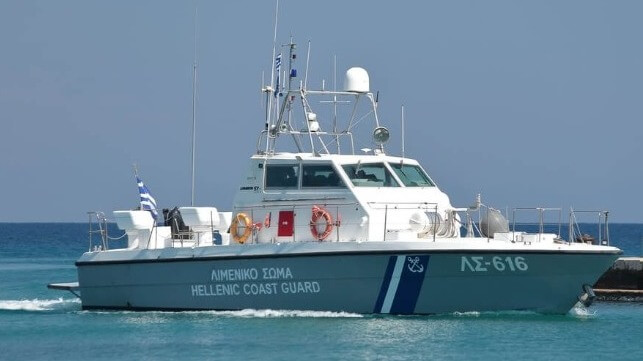Greece Shows Support for its Coast Guard After Controversial BBC Report

After a controversial report from the BBC about the Hellenic Coast Guard's interactions with maritime migrants, the Greek government has expressed its continued support for its coast guard administration, emphasizing that a news report is not equivalent to an investigation.
Two days after BBC reported on allegations that the Hellenic Coast Guard contributed to the deaths of at least 43 migrants during pushback operations, including nine individuals who were allegedly thrown into the water, Greek Deputy Minister of Shipping Stefanos Gikas visited a Hellenic Coast Guard SAR center and showed support for the agency's work.
"I would like to point out that the LS- EL.AKT. [Hellenic Coast Guard] over time, but especially in recent years with the migration crisis, has saved hundreds of thousands of lives, both in the Greek and neighboring seas," said Gikas. "The zeal, self-sacrifice, professionalism and humanity shown by the executives of L.S.- EL.AKT. in the performance of duty are excellent. We stand by the executives and will be helpful in their work."
In a recent investigation, reporters at BBC looked into 15 accounts of fatalities involving alleged pushback operations between 2020-23. They interviewed multiple migrants who claimed that they were intercepted after they reached shore in Greece, transferred to the Hellenic Coast Guard, and taken back out to sea. The outlet obtained verified footage of a similar "pushback" operation and showed it to the former Greek Coast Guard head of special operations, Dimitris Baltakos, who denied that it showed any wrongdoing. During a break in the interview, Baltakos - speaking in Greek to a colleague off-camera - appeared to confirm that the activity shown in the video was "obviously illegal," and he questioned why the team performed the operation in "broad daylight."
Some of the BBC's migrant interviewees said that they were pushed into the water by Greek personnel, and that they had observed other migrants drown from the same treatment. BBC also reported an apparent pattern of Greek law enforcement personnel using plainclothes attire and unmarked vehicles when interdicting migrants, as previously reported by Doctors Without Borders and other NGOs.
The Greek government says that its National Transparency Authority is investigating the video footage in question. Greece's main opposition party, Syriza, has also called for a formal inquiry.

that matters most
Get the latest maritime news delivered to your inbox daily.
"Our understanding is that what is reported is not proved," government spokesperson Pavlos Marinakis said in a press conference Monday. "Every complaint is looked into, and in the end, the relevant findings are made public."
According to recent polling, about 90 percent of Greek citizens believe that their nation accepts too many migrants. Irregular migration to Greece occurs primarily via the Aegean, and the origin countries are primarily in the Mideast and Africa. The flow reached an all-time high last fall, prompting the Greek government to enter into a new agreement with Turkey to deter maritime migration. According to the Hellenic Coast Guard, the agreement has worked, and the number of arriving migrants has fallen by half.
